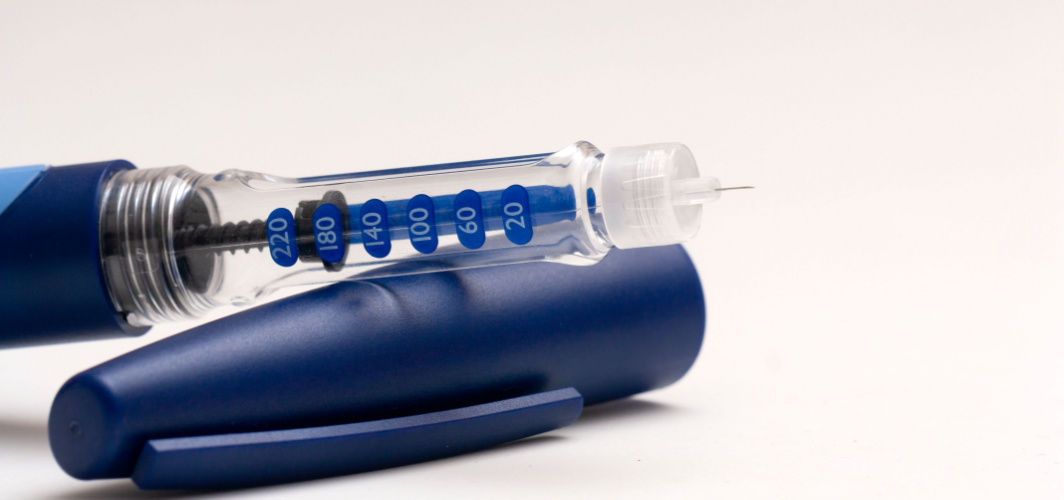Diabetes Management
What are the Factors that Influence Insulin Action?
3 min read

Insulin action, which refers to the ability of insulin to regulate blood sugar levels and various metabolic processes in the body, is influenced by a range of factors. Here are some of the key factors that influence insulin action:
1. Insulin Sensitivity
Insulin sensitivity refers to how responsive your cells are to the effects of insulin. Individuals with high insulin sensitivity require lower levels of insulin to regulate blood sugar effectively. Factors like extra weight, physical activity, diet and genetics can affect insulin sensitivity.
2. Body Composition
The amount and distribution of body fat can influence insulin action. Excess fat, especially visceral fat (fat around internal organs), is associated with insulin resistance. Maintaining a healthy body composition through diet and exercise can improve the insulin action.
3. Physical Activity
Regular exercise can enhance insulin sensitivity. It helps muscles take up glucose without the need for as much insulin. Both aerobic exercise and resistance training have positive effects on insulin action.
4. Diet
The type and timing of food intake can impact insulin action. High-sugar and high-carbohydrate diets can lead to spikes in blood sugar levels and, over time, may contribute to insulin resistance. A balanced diet can support better insulin regulation. These include:
- Fiber
- Healthy fats
- Controlled carbohydrate intake
5. Hormones
Various hormones, such as cortisol and growth hormone can affect insulin action. Imbalances in these hormones can lead to insulin resistance.
6. Stress
Chronic stress can lead to increased levels of stress hormones like cortisol, which can interfere with insulin action and contribute to insulin resistance.
7. Sleep
Poor sleep patterns and insufficient sleep can disrupt hormonal balance by increasing stress hormone levels like cortisol and lead to insulin resistance.
8. Age
Insulin sensitivity tends to decrease with age primarily due to changes in body composition, increased inflammation, and cellular resistance to insulin's actions, making it less effective at regulating blood sugar levels. Older adults may require more insulin to maintain glucose control
9. Medications and Medical Conditions
Some medications, such as steroids and certain antipsychotic drugs, can impair insulin sensitivity. Additionally, medical conditions like Polycystic Ovary Syndrome (PCOS) and certain autoimmune diseases can affect insulin action.
10. Genetics
Genetic factors play a significant role in determining an individual's insulin sensitivity and how their body responds to insulin. Some people may have genetic predispositions to insulin resistance or other insulin-related conditions.
Conclusion
It's important to note that these factors often interact with each other, and addressing multiple factors simultaneously can be more effective in improving insulin action and overall metabolic health. Lifestyle modifications, such as maintaining a healthy diet, engaging in regular physical activity and managing stress, are key strategies for enhancing insulin sensitivity.
Diabetes Management
Leave Comment
Recommended for you

Diabetes Management
How to Check Sugar Levels After a Meal?
Monitoring post-meal sugar levels is important for effective diabetes management, which can be achieved through a glucometer. This includes steps like using a glucometer, checking your blood sugar levels 1-2 hours after your meal, maintaining your hand hygiene before testing, and preparing your lancet device properly. Moreover, tracking and interpreting results equip individuals to make informed decisions about diet, medication, and exercise. You should always get in touch with a diabetologist to ensure tailored guidance, fostering improved blood sugar control and overall health and well-being.
.jpg?tr=q-80)
Diabetes Management
Log. Track. Learn- Here’s How You Can Simplify Your Diabetes Management
Simplify your diabetes management with Apollo 24|7's diabetes self-management tool. Track your glucose levels, monitor physical activity, sync glucometers, understand the impact of your meals on your sugar levels and stay informed through Health Bites. You can try this user-friendly tool that empowers you to make informed decisions, achieve better blood sugar control, and lead a healthier life while simplifying your diabetes management journey.

Diabetes Management
New Draft Article
Subscribe
Sign up for our free Health Library Daily Newsletter
Get doctor-approved health tips, news, and more.
Visual Stories

8 Fruits That are Incredibly Healthy for Diabetes
Tap to continue exploring
Recommended for you

Diabetes Management
How to Check Sugar Levels After a Meal?
Monitoring post-meal sugar levels is important for effective diabetes management, which can be achieved through a glucometer. This includes steps like using a glucometer, checking your blood sugar levels 1-2 hours after your meal, maintaining your hand hygiene before testing, and preparing your lancet device properly. Moreover, tracking and interpreting results equip individuals to make informed decisions about diet, medication, and exercise. You should always get in touch with a diabetologist to ensure tailored guidance, fostering improved blood sugar control and overall health and well-being.
.jpg?tr=q-80)
Diabetes Management
Log. Track. Learn- Here’s How You Can Simplify Your Diabetes Management
Simplify your diabetes management with Apollo 24|7's diabetes self-management tool. Track your glucose levels, monitor physical activity, sync glucometers, understand the impact of your meals on your sugar levels and stay informed through Health Bites. You can try this user-friendly tool that empowers you to make informed decisions, achieve better blood sugar control, and lead a healthier life while simplifying your diabetes management journey.

Diabetes Management